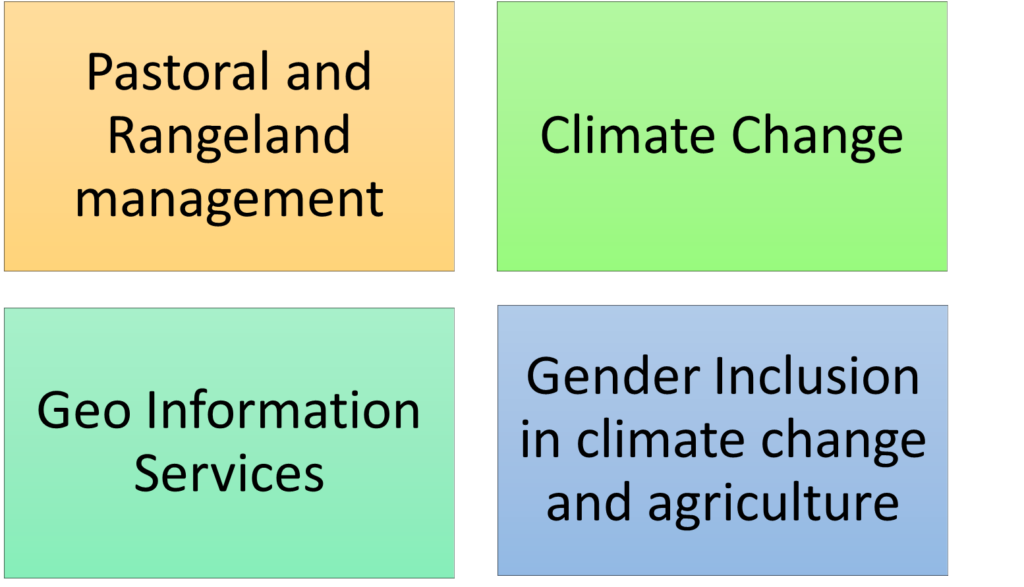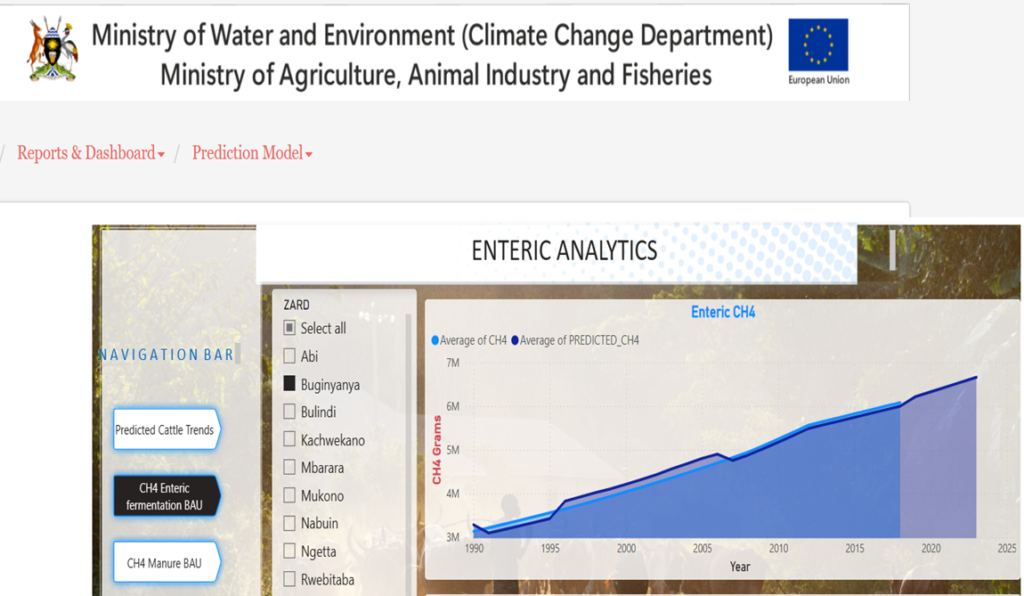GECA hosted by ESIPPS, a Non Government operating as a think tank has supported and conducted research topics on areas within Nairobi, Kenya in regards to drylands, wetlands and the pipeline.
ESIPPS Strategic Areas of Focus for Drylands

1. Projects on Pastoral and Rangeland Management

•Development of an Innovative System for the reduction of Greenhouse Gas Emissions and environmental impacts of the nascent beef industry in Uganda in support to rural sustainable transformation (SIRGE Project)
•Developed an Integrated Economic and Ecological Livestock Grazing and Feed System for Agro-Pastoralists Communities in three (3) Micro-Catchments in the Karamoja (funded by IUCN Uganda)
•Development of Two (2) mapping application tools: 1) New application tools that test the use of Earth Observation and Geoinformation for Rangelands Monitoring and early warning 2)Wetlands Vulnerability Analysis App Using Geoinformation Analysis Tools – including development of policy briefs for 10 eastern Africa countries.
2. Climate Change Projects

SIRGE Project
•Developed a Greenhouse gas inventory database for cattle using the IPCC Tier 2 Approach
•Policy brief developed on fostering Enhanced Dairy and Beef Productivity through Low Carbon Intensity Pathway in Uganda
3. Geo-information Services and Projects

•Earth Observation for Rangelands Monitoring and early warning application Tools.
•Wetlands Vulnerability Analysis App Using Geo-information Analysis Tools.
•Geo-mapping for Hay making in Climate Stressed Rangelands (Geo4HCR) project
•SIRGE project (included AI & ML model for integrating pasture condition maps- NDVI , livestock density and determine carrying capacity)
•Policy briefs on the tools (RCMRD & ICPAC)
ESIPPS PIPELINE PROPOSED RESEARCH RESULT AREAS
a) Strengthened Science Policy interface for improved response to the challenges in livestock and rangeland management.
b) Enhanced community participatory decision making by applying a developed stakeholder engagement approach for climate change adaptation for agro-pastoralists in Eastern Africa.
c) Explore Agricultural water management technologies for addressing GBV(Gender Based Violence) in displaced Pastoral communities.
d) Explore Water, Energy and Food Technologies for building climate change resilience of women pastoralists within the pastoral production systems in Eastern Africa.
e) Geo-information innovations to mitigate greenhouse gas emissions in Rangelands.
f) Capacity Building in adoption of Rangeland Geoinformation monitoring and assessment tools.
g) As part of GECA , develop a knowledge centre of excellence for gender inclusion in drylands and pastoral areas management
Preamble
Crops and livestock value chains should be seen as gendered; men dominate high value cash crop and larger livestock assets such as cows, while women have more authority over food security crop and smaller livestock such poultry and goats; women are often side-lined in the marketing and value addition stages of the value chain.
The asymmetric gender attribution of low-income earning value chains to women and the more lucrative ones to men, and the limited control by women over the proceed of their labour, makes them more vulnerable to poverty.
“This asymmetry results in an unequal distribution of opportunities, resources, and power between individuals of different genders, with one gender often enjoying certain privileges over the other”. Kireyeva, A. & Kenzheali, Y. (2024).
Research topics
1. Research on the existing gender gap (through structured gender analysis,1) within the Kaabong District context and specifically on production as : income, women’s control over earnings from sales, workload distribution, decision making and women’s access to inputs needs to be further understood
2. Research on the existing value chains, identify opportunities to expand the traditional value chains under a more market-oriented and value addition strategy in order to get business, economic, employment opportunities for women and youth.
Structured gender analysis, effective to identify:
a. Social relations (normative roles, duties and responsibilities) and specifically leadership: membership in economic or social groups, comfort in speaking in public and drivers/options to reduce GBV
b. Activities (division of labour within the HH and community) and production: sole or joint decision making over food and cash-crop farming, livestock, and fisheries as well as autonomy in agricultural production;
c. Control over resources, services and decision making; and specifically ownership, access to, and decision making power over productive resources such as land, water, livestock, agricultural equipment, consumer durables, and credit, income: sole or joint control over income and expenditures
d. Time: allocation of time to productive and domestic tasks and satisfaction with the available time for leisure activities.
e. Gender needs both practical (current), and strategic (what needs to change)
Opportunities
1) Increasing value addition options in pastoral areas, expanding the value chain and create addition business models outside the male dominium (inputs and services).
2) Identify area for tackling current gender-blind spots in programmes and facilitate women’s access to productive assets, skills-training, and value-chain business models.
3) Explore possible women’s participation in groups and in Village Savings and Loans Associations which can generated shifts in well-being, confidence and self-worth, increasing their ability to exercise voice and gain empowerement.
4) Explore institutionalization and a possible increase in the use of quantitative gender empowerment indicators, to quantify and monitor the impact of interventions in development projects and interventions, and devise policy advisory
5) Explore Geoinformation models to support planning and decision making on resource status, access and use
For more information contact:
GECA Secretariat at ESIPPS International,
Tel: +256 772 523057, Email: geca@esipps.org
www.esipps.org/geca
LinkedIn: https://www.linkedin.com/in/geca-research-institute-408206309/